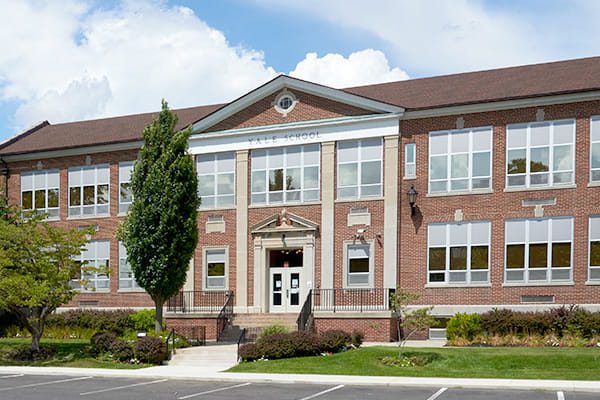Why It's Vital to Rally With Each Other to Save Temecula Schools
Why It's Vital to Rally With Each Other to Save Temecula Schools
Blog Article
Important Standards to Think About When Evaluating Prospective Colleges for Enrollment
When thinking about institutions for registration, reviewing necessary standards comes to be paramount to ensuring a conducive learning setting. The institution's culture must advertise regard and inclusivity to promote a supportive community.
Academic Programs
When reviewing possible colleges for enrollment, taking into consideration the breadth and depth of their scholastic programs is critical. Premium academic programs not only determine the academic worth a pupil will obtain but also affect future chances and career paths. Potential trainees and their households ought to inspect the educational program to ensure it lines up with the trainee's scholastic interests and occupation desires.
Certification is an essential element, as it symbolizes that the establishment meets well-known standards of top quality. In addition, the diversity naturally offerings, including sophisticated positioning (AP) or International Bachelor's Degree (IB) programs, can dramatically enhance a pupil's understanding experience. Schools with robust scholastic tracks in STEM, humanities, and the arts show a dedication to comprehensive education and learning.
Faculty credentials and student-to-teacher proportions are likewise vital signs of academic excellence (Save Temecula Schools). Extremely credentialed trainers and smaller sized course dimensions typically bring about more customized interest and a far better academic experience. Additionally, the schedule of scholastic resources such as libraries, research laboratories, and modern technology centers can further enrich the discovering setting.
Evaluating these elements ensures that the chosen institution provides a rigorous and helpful scholastic framework, important for fostering intellectual development and preparing pupils for future success.
Extracurricular Tasks
Beyond the academic world, extracurricular tasks play a significant role fit a well-rounded educational experience. These activities give pupils with opportunities to develop abilities that extend beyond the class, such as teamwork, time, and management administration. When assessing prospective institutions for registration, it is vital to take into consideration the variety and high quality of extracurricular programs used.
A diverse series of activities, including sports, arts, songs, argument clubs, and area service efforts, can provide to various interests and skills. Institutions that sustain a broad spectrum of extracurriculars show a dedication to cultivating alternative growth. In addition, engagement in these activities can boost college applications and returns to, showcasing a trainee's capability to balance numerous responsibilities.
Furthermore, consider the level of trainee involvement and the college's inspiration of involvement. Colleges that actively promote extracurricular involvement usually develop a dynamic, inclusive neighborhood.
Class Dimensions
One of the critical elements to think about when evaluating prospective colleges for registration is class size. Class dimension substantially affects the top quality of education that a pupil receives.
Moreover, smaller sized course sizes can add to a more cohesive classroom environment. With fewer trainees, there is a greater possibility for constructing solid relationships between instructors and peers, which can improve the discovering environment and promote a sense of community. This also enables even more reliable class monitoring, as instructors can dedicate even more time to maintaining a favorable and effective atmosphere.

College Society
Understanding the significance of school society is important when assessing prospective colleges for registration. Assessing a college's culture includes observing communications amongst students, educators, and personnel, as moved here well as understanding the institution's mission, values, and expectations.
Prospective moms and dads and trainees need to look for schools that prioritize respect, partnership, and a positive ethos. Look for indications such as solid student-teacher relationships, active involvement in college activities, and a feeling of community. A healthy and balanced school culture usually advertises variety and addition, making certain that trainees from different backgrounds feel invited and valued.
In addition, a favorable institution culture encourages open communication and provides pupils with a risk-free environment to share themselves. When visiting an institution, engage with present pupils and staff to assess their satisfaction and sense of belonging.
Facilities and Resources
When reviewing possible schools for enrollment, the high quality and schedule of facilities and resources play an essential duty in forming the academic experience. A college furnished with modern-day facilities can dramatically improve finding out results.
Collections are another cornerstone of scholastic excellence. A well-stocked library with a varied series of books, journals, and electronic resources can support pupils' research requirements and promote a culture of reading and query. Similarly important are athletic facilities. Gyms, sports fields, and swimming pools not only add to physical well-being yet likewise promote teamwork and self-control.
Modern technology is vital in today's educational landscape. Schools need to use reliable net access, computer system laboratories, and wise class to promote electronic understanding. Additionally, specialized resources such as art workshops, songs rooms, and theater rooms can nurture imaginative abilities.
Inevitably, the breadth and top quality of a school's resources and centers can considerably affect a student's total growth. Thus, parents must very carefully examine these aspects to ensure a well-rounded and enhancing educational experience.
Conclusion
In recap, evaluating potential schools for registration requires a detailed analysis of several vital factors. Additionally, a school culture that highlights regard and browse around this site inclusivity is more tips here essential to developing a encouraging and reliable understanding environment.

A healthy and balanced school society usually advertises diversity and incorporation, making certain that trainees from different backgrounds feel welcomed and valued.
Additionally, a favorable school culture urges open interaction and supplies trainees with a safe setting to reveal themselves.
Report this page